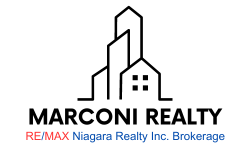Condominium refers to a type of property ownership. Condominium owners hold title to their private living space and share ownership jointly of the common areas with other owners in the condominium corporation (a legal entity representing the collective interests of its owners). Owners and renters have a responsibility to comply with the rules and bylaws put forth by the condominium board.
As a buyer, rules and bylaws can impact the use and enjoyment of the property therefor it’s important to be mindful of them for each condominium as they can vary. For example, rules can control how visitors use common elements, prevent owners from using their unit as short-term rentals, or limit the size of pets an owner can keep.
Typically, residential condominium corporations are divided into units and common elements. The unit is the private living space in which the owner holds sole title. The common elements refer to the property within the corporation that is not defined as a unit such as elevators, hallways, and gardens. Owners share the costs of maintenance and repairs of the common elements.
Condominium ownership can be grouped into leasehold or freehold:
- Freehold – standard. Owners own their unit and an interest in the property’s common elements which cannot be separated from the ownership of the unit.
- Freehold – common element. Contains no units but has common elements such as roads or a community centre. Owners own their house and the land it sits on, and share in the ownership and expenses of the common elements.
- Freehold – vacant land. A builder can register the corporation before the condominium units are constructed and sold.
- Freehold – phased. A builder sells units in the property and reserves the right to create additional units or common elements in future stages of development under the same condominium corporation.
- Leasehold. It is constructed on leased land. The developer is not the owner of the land but has a lease that permits a condominium development and can sell the right to lease the land. Buyers buy a leasehold interest in units and common elements but do not own the land. The term of a lease can range from 40 to 99 years.
Styles of Residential Condominiums:
Condominiums range in terms of building types such as high-rise apartment-style buildings, single homes or a complex including multiple homes. Another example is a mixed-used building whereby residential units are located above retail or commercial spaces at street level.
Parking and Storage:
Freehold – Parking: The unit owner owns the parking space, either as part of the unit description or with separate title. Storage: The owner owns the storage locker.
Leasehold – Parking: The condominium corporation holds ownership of the parking and leases them to unit owners. Storage: The corporation retains ownership and leases to unit owners.
Exclusive use common element – Parking and Storage: The condominium corporation owns the parking or storage spaces. It gives unit owners the right to use specific spaces as described in the declaration.
Allocated or assigned – Parking and Storage: The condominium corporation owns the parking or storage spaces and assigns them to unit owners on a discretionary basis.
Maintenance:
Condominium owners maintain their own units but do not have responsibility for maintaining the wider property. The maintenance costs are part of the monthly fee paid by all unit owners. Major repair and equipment replacement are shared. Condominium corporations in Ontario are required to have a reserve fund. A portion of the monthly fees is set aside to cover major repairs or replacements to common elements such as elevators, hallways, roofs, and recreational facilities.
Security:
Condominium security systems can include:
• Monitoring cameras
• Entrance gates and security system
• Monitoring alarms and smoke sensors
• Key card or key fob entry to parking and recreational facilities
• 24-hour front desk security person
Amenities:
Some common condominium amenities are:
• Gym
• Rooftop Terrace
• Party or games room
• Pool
• Movie Theatre
• Visitor suites and parking
Insurance:
Insuring a condominium property can be less expensive than insuring a house. The corporation will have a master insurance policy paid for by the condominium fees. The corporation will insure for all standard components of a unit as defined in the declaration. Any modifications or upgrades to a unit must be covered by the owner’s personal insurance policy. Owners also require separate coverage for theft and liability and for special assessments or lawsuits that the corporation’s master insurance policy or reserves fail to cover. Coverage is also advised for storage lockers and parking spaces. Buyers should get advice from an insurance professional.
Condominium fees:
Condominium unit owners pay for the upkeep of their unit. They must also pay the common expense fees in the proportion specified in the declaration. The fees should cover ongoing building equipment, maintenance and expenses. Condominium fees are mandatory and non-negotiable under the Condominium Act. This is true even if the owner:
• Has waived or abandoned the right to use the common elements
• Is making a claim against the corporation
• Is restricted from using the common elements by the declaration, bylaws or rules
If an owner defaults in the obligation to contribute to the common expenses or reserve fund, the corporation can register a lien against the owner’s unit and seek compensation.
Reserve Fund:
A portion of the monthly condominium fees is assigned to the reserve fund to cover major repairs. If a corporation’s reserve fund is insufficient to cover unexpected expenses, owners are liable for the costs of special assessments. This can mean an unexpected increase in the cost of ownership. In the case of resale condominiums, buyers should have the corporation’s reserve fund reviewed by a real estate lawyer.
Owners have the right to request that management provide the most up-to-date reserve fund study which determines how much money needs to be in the fund to ensure the repairs can be paid for in the future. It needs to be prepared by a specialist such as an engineer.
Condo Rules:
Rules prevent interference with the use and enjoyment of common elements. While condominium’s rules can differ, typically they relate to pets, parking, noise levels, number of occupants per unit, decoration, and modifications to units.
Condo Bylaws:
Bylaws govern the corporation’s internal operations and the management of the property and its assets.
Status Certificate:
A Status Certificate is a document given by a condominium corporation, as required by the Condominium Act, to buyers of condominiums. It is a document that will give buyers details of the financial and legal circumstances of both the condominium building and the unit they are interested in. It should be reviewed by the buyer’s lawyer.
Warranty Requirements for New Condominiums:
New condominiums are subject to the warranty requirements for new homes in Ontario. Like all new homes in Ontario, a condominium is protected by mandatory warranties provided by the builder and supported by the Tarion Warranty Corporation.
The Ontario New Home Warranties Plan Act for condominium units provides:
• Protection for deposits
• Compensation for delays in closing or occupancy
• Protection against unauthorized substitutions
• One and two-year warranties for certain defects in work and materials
• Seven-year warranty for major structural defects
• Coverage for condominium common elements
Comments are closed

